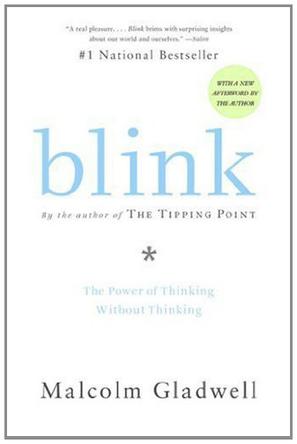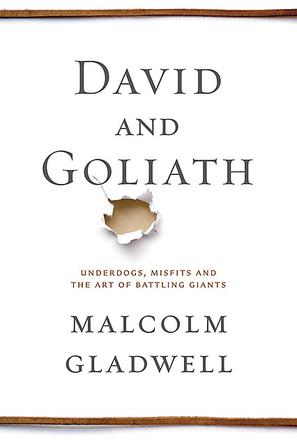-

What the Dog Saw
What is the difference between choking and panicking? Why are there dozens of varieties of mustard-but only one variety of ketchup? What do football players teach us about how to hire teachers? What does hair dye tell us about the history of the 20th century? In the past decade, Malcolm Gladwell has written three books that have radically changed how we understand our world and ourselves: The Tipping Point; Blink; and Outliers. Now, in What the Dog Saw, he brings together, for the first time, the best of his writing from TheNew Yorker over the same period. Here is the bittersweet tale of the inventor of the birth control pill, and the dazzling inventions of the pasta sauce pioneer Howard Moscowitz. Gladwell sits with Ron Popeil, the king of the American kitchen, as he sells rotisserie ovens, and divines the secrets of Cesar Millan, the "dog whisperer" who can calm savage animals with the touch of his hand. He explores intelligence tests and ethnic profiling and "hindsight bias" and why it was that everyone in Silicon Valley once tripped over themselves to hire the same college graduate. "Good writing," Gladwell says in his preface, "does not succeed or fail on the strength of its ability to persuade. It succeeds or fails on the strength of its ability to engage you, to make you think, to give you a glimpse into someone else's head."What the Dog Saw is yet another example of the buoyant spirit and unflagging curiosity that have made Malcolm Gladwell our most brilliant investigator of the hidden extraordinary. -

Blink
In his landmark bestseller The Tipping Point, Malcolm Gladwell redefined how we understand the world around us. Now, in Blink, he revolutionizes the way we understand the world within. Blink is a book about how we think without thinking, about choices that seem to be made in an instant-in the blink of an eye-that actually aren't as simple as they seem. Why are some people brilliant decision makers, while others are consistently inept? Why do some people follow their instincts and win, while others end up stumbling into error? How do our brains really work-in the office, in the classroom, in the kitchen, and in the bedroom? And why are the best decisions often those that are impossible to explain to others?In Blink we meet the psychologist who has learned to predict whether a marriage will last, based on a few minutes of observing a couple; the tennis coach who knows when a player will double-fault before the racket even makes contact with the ball; the antiquities experts who recognize a fake at a glance. Here, too, are great failures of "blink": the election of Warren Harding; "New Coke"; and the shooting of Amadou Diallo by police. Blink reveals that great decision makers aren't those who process the most information or spend the most time deliberating, but those who have perfected the art of "thin-slicing"-filtering the very few factors that matter from an overwhelming number of variables. -

Blink
Intuition is not some magical property that arises unbidden from the depths of our mind. It is a product of long hours and intelligent design, of meaningful work environments and particular rules and principles. This book shows us how we can hone our instinctive ability to know in an instant, helping us to bring out the best in our thinking and become better decision-makers in our homes, offices and in everyday life. Just as he did with his revolutionary theory of the tipping point, Gladwell reveals how the power of blink' could fundamentally transform our relationships, the way we consume, create and communicate, how we run our businesses and even our societies.You'll never think about thinking in the same way again. -

David and Goliath
Three thousand years ago on a battlefield in ancient Palestine, a shepherd boy felled a mighty warrior with nothing more than a stone and a sling, and ever since then the names of David and Goliath have stood for battles between underdogs and giants. David's victory was improbable and miraculous. He shouldn't have won. http://www.amazon.com/David-Goliath-Underdogs-Misfits-Battling/dp/0316204366/ref=sr_1_1?ie=UTF8&qid=1376880608&sr=8-1&keywords=David+and+Goliath -

What the Dog Saw
What is the difference between choking and panicking? Why are there dozens of varieties of mustard-but only one variety of ketchup? What do football players teach us about how to hire teachers? What does hair dye tell us about the history of the 20 th century? In the past decade, Malcolm Gladwell has written three books that have radically changed how we understand our world and ourselves: The Tipping Point ; Blink ; and Outliers. Now, in What the Dog Saw , he brings together, for the first time, the best of his writing from The New Yorker over the same period. Here is the bittersweet tale of the inventor of the birth control pill, and the dazzling inventions of the pasta sauce pioneer Howard Moscowitz. Gladwell sits with Ron Popeil, the king of the American kitchen, as he sells rotisserie ovens, and divines the secrets of Cesar Millan, the "dog whisperer" who can calm savage animals with the touch of his hand. He explores intelligence tests and ethnic profiling and "hindsight bias" and why it was that everyone in Silicon Valley once tripped over themselves to hire the same college graduate. "Good writing," Gladwell says in his preface, "does not succeed or fail on the strength of its ability to persuade. It succeeds or fails on the strength of its ability to engage you, to make you think, to give you a glimpse into someone else's head." What the Dog Saw is yet another example of the buoyant spirit and unflagging curiosity that have made Malcolm Gladwell our most brilliant investigator of the hidden extraordinary. -

Blink
Blink is about the first two seconds of looking--the decisive glance that knows in an instant. Gladwell, the best-selling author of The Tipping Point, campaigns for snap judgments and mind reading with a gift for translating research into splendid storytelling. Building his case with scenes from a marriage, heart attack triage, speed dating, choking on the golf course, selling cars, and military maneuvers, he persuades readers to think small and focus on the meaning of ”thin slices” of behavior. The key is to rely on our ”adaptive unconscious”--a 24/7 mental valet--that provides us with instant and sophisticated information to warn of danger, read a stranger, or react to a new idea. Gladwell includes caveats about leaping to conclusions: marketers can manipulate our first impressions, high arousal moments make us ”mind blind,” focusing on the wrong cue leaves us vulnerable to ”the Warren Harding Effect” (i.e., voting for a handsome but hapless president). In a provocative chapter that exposes the ”dark side of blink,” he illuminates the failure of rapid cognition in the tragic stakeout and murder of Amadou Diallo in the Bronx. He underlines studies about autism, facial reading and cardio uptick to urge training that enhances high-stakes decision-making. In this brilliant, cage-rattling book, one can only wish for a thicker slice of Gladwell's ideas about what Blink Camp might look like. --Barbara Mackoff